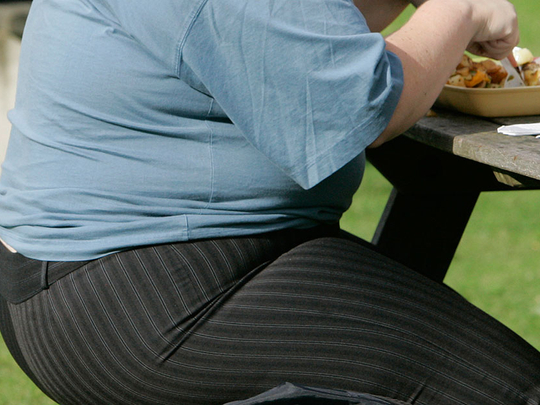
Dubai: High consumption of hidden sugars in our food on a daily basis has resulted in a obesity pandemic leading to cardiovascular diseases, diabetes, hypertension and cancers, which eventually cause premature death, according to a World Health Organisation (WHO) report.
Following the pandemic, WHO has issued new guidelines to cut direct sugar consumption in our food to not more than 6-12 teaspoons a day.
If the US, UK and Portugal have a high average of consuming as high as 18, 17 and 25 teaspoons of sugar a day, the average UAE resident is also somewhere in this range.
Dr Wafa Aish, clinical dietician with Dubai Health Authority (DHA) who is on the National Committee formed by the UAE on cutting down consumption of sugar told Gulf News: “While we do not have specific numbers in the UAE, I can tell you the percentage of daily sugar consumption is much higher. Our committee is conscious of this and we are working towards cutting back sugars in packed food items by a minimum of two per cent.”
Reportedly, obesity and the various lifestyles diseases it spawns has a direct correlation to the amount of sugar we ingest. So while we might think we are on a low-fat diet we might be unwittingly ingesting many teaspoons (hidden sugars in soft drinks, cereal bars, fruits juices, refined and processed flour food items like croissants, doughnuts, processed foods that contain high fructose corn syrup such as ketchups, pasta sauces and salad dressings) of sugar without realising we are overdosing.
Mitun Desarkar clinical dietician who runs a popular health food catering service, Simply Healthy in Dubai, said: “If we have to understand the ingestion of white sugar hidden in processed foods in our daily diet we have to take one look at the kind of food we have from breakfast to dinner.”
“If we are eating even half of these food items from breakfast to dinner, we are actually consuming more than 15 teaspoons of sugar because none of us stop at one slice of bread or one teaspoon of ketchup and pasta sauce,” she pointed out.
Dr M. Hamed Farooqi, director of the Dubai Diabetes Centre at DHA, explained how sugar impacts our body and degenerates our metabolism levels.
“High levels of sugars in the blood damages the delicate inner lining of the blood vessels through various chemical reactions. Once this lining is damaged, the vessels start to get narrow and may eventually clog up. Generally the eyes, kidneys, feet, heart and brain are the first areas to show damage. But as we have blood vessels in every part of our body, therefore any part of the body is likely to get damaged by high sugar in the blood.”
DeSarkar cautioned that people needed to be educated about the fallout of high sugar consumption and needed to look for alternate options such as English mustard for ketchup, making their own pasta sauce, opting for steel cut oats with a hint of cinnamon and sweetened with prunes and apricots that have natural sugars instead of muesli and cereal bars, having fresh unsweetened yoghurt topped with chopped fresh fruits instead of sweetened yoghurt and finally snacking on nuts and seeds that contain natural sugars instead of junk food.
“On an average people can manage pretty well with about 5 teaspoons of sugar. Too much sugar from simple carbohydrates that have a high glycaemic index (GI) — a unit of measurement recording the rate at which simple sugars are absorbed by our bodies), causes sudden spikes in insulin levels.” The waves and troughs on the insulin production causes our bodies to fall in a vicious circle of low and high sugar levels that only causes more sugar cravings. Eventually excess sugar gets converted into fat and obesity which leads to cardiovascular diseases, diabetes, hypertension and some kinds of cancers.












